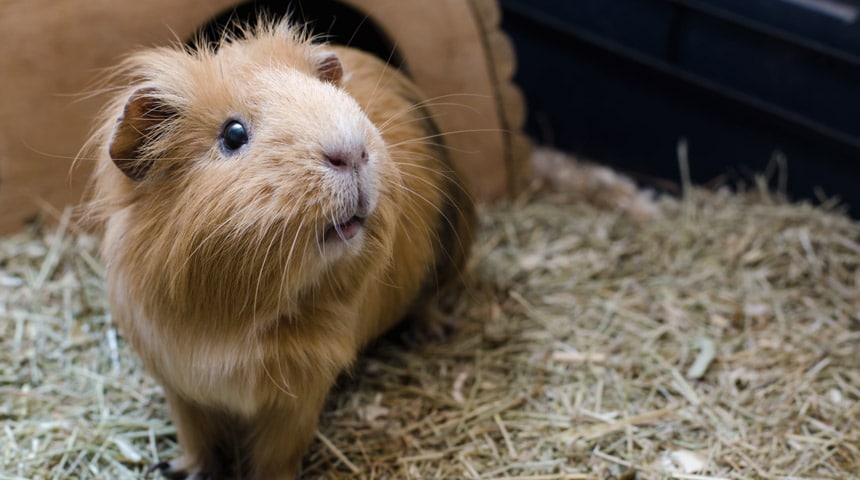
Rats are often chosen as pets for their calm yet playful personalities. They are sociable animals and love to live in groups. They often get very attached to their human and it is thus possible to develop a great relationship with this pet. They are intelligent and can easily learn different tricks by using positive reinforcement (treats). Rats are a perfect first pet for young children because they are docile and rarely bite.
Domestic mice are harder to handle and thus are not recommended for young children as they tend to bite and can easily escape. They are mostly solitary animals. Females can live in groups, but males cannot as they will often fight and inflict severe wounds and even death.
Hamsters are nocturnal and often fearful animals. It is important to handle them calmly to avoid startling them, which could provoke painful bites. If they are handled frequently, they can become very affectionate and docile. They are solitary animals.
Gerbils are usually playful and very active. They can be kept in groups of several individuals of the same gender, however adults can become territorial and thus more aggressive towards other individuals. Gerbils are usually very docile but because they are so lively they must be handled gently and with precaution.
Diet
Most small rodents are omnivorous animals. There are many commercial diets available in pet stores. A grass-based kibble with no added fruits, vegetables or dried grains is recommended. Rodents tend to favour these ingredients at the expense of the more balanced kibble. Therefore, packaged grain mixes for rodents do not constitute not a balanced diet. The kibble should contain 14-17% of protein for hamsters, 14-16% for rats and mice and more than 22% for gerbils. As a treat you can offer a small quantity of grains and fresh food such as lettuce, fine herbs, peppers, cabbage, broccoli, fruits, table food, etc. It is recommended to monitor the weight of your pet to avoid an excess weight gain and its associated health problems. Make sure they have access to fresh water every day.
Husbandry
It is important to offer a safe, stimulating, easy to clean and escape-proof environment. It is recommended to have a multi-story cage with good ventilation, large doors to allow easy access and a good locking system. The cage must be cleaned regularly to avoid bacterial and fungal growth. It is also recommended to use recycled paper strips, tissues or paper towels to cover the bottom of the cage. Wood chips must be avoided because they are very dusty and can cause respiratory and skin problems. The cage should not be under direct sunlight.
Hamsters and gerbils must also have access to a sand bath (look for chinchilla sand in pet stores). The bowl can be made available roughly 15-30 minutes several times a week. It is important not to leave the sand bowl accessible at all times because the sand can irritate the eyes.
It is essential to offer an enriching environment with small hiding places, games, mazes, material to shred (such as playing cards, wadding, tissues, etc.) thus allowing them to build a nest. Labyrinths can be constructed using PVC tubes, toilet paper rolls and paper towel rolls. Be creative and offer them a stimulating environment allowing them to explore and play in a safe setting.
Julie Hébert, DVM, Dipl. ABVP (avian practice)
Édouard Maccolini, DMV, IPSAV, Dipl. ABVP (avian practice)
Sarah Alberton, DVM, IPSAV (zoological medicine)
Kim Langlois, DVM

